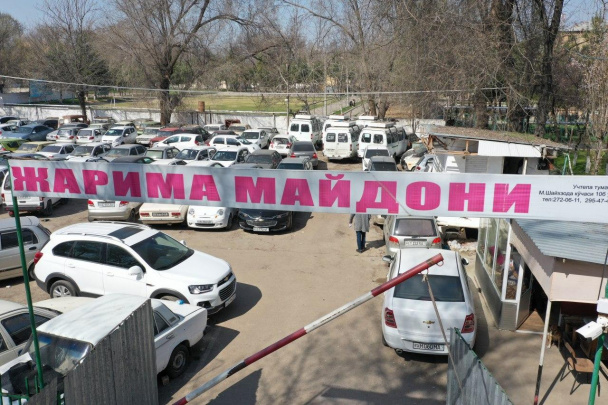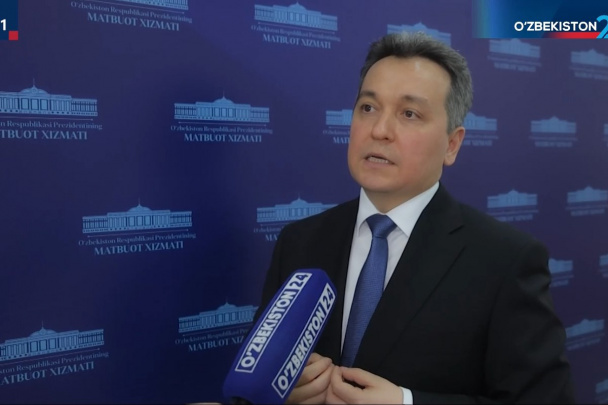YouTube monetization in Uzbekistan could generate up to $50 million: What’s holding it back?
Uzbekistan is losing approximately $50 million annually due to the unavailability of YouTube monetization, according to an analysis by the Center for Economic Research and Reforms (CERR). Enabling this feature could boost economic growth by up to 0.1%. The Center has examined why monetization remains inactive and how the situation can be addressed.

The Center for Economic Research and Reforms (CERR) conducted an analysis of the potential economic impact of enabling YouTube monetization – earning revenue from advertising – in Uzbekistan and identified key barriers to launching this service.
Economic potential of YouTube monetization
YouTube monetization is active in 108 countries worldwide. In Central Asia, it is only available in Kazakhstan. The service is disabled in Russia (due to sanctions) and China.
The creative industry accounts for 3.1% of global GDP and employs 6.2% of the world’s working-age population. In Uzbekistan, approximately 9,600 companies with 84,000 employees operate in this sector. By 2030, the goal is to increase the creative economy’s share of GDP to 5%.
As of January 2025, Uzbekistan has 33.9 million mobile subscribers and 32.7 million internet users. The average mobile internet speed is 37.82 Mbps, and fixed broadband speed is 79.06 Mbps.
Social media usage in Uzbekistan includes 11.7 million Instagram users, 2.6 million TikTok users, 2.3 million Facebook users, and 250,000 X (formerly Twitter) users. Web traffic distribution is as follows: 66% Instagram, 13% Pinterest, 8% Facebook, and 6.3% YouTube.
YouTube has 13 million monthly active users in Uzbekistan, Telegram has 20 million, and Meta (Instagram and Facebook) has 10 million.
The advertising market in Uzbekistan in 2024 is estimated at 2.1 trillion UZS, with the following breakdown:
- 29% digital advertising;
- 20% outdoor advertising;
- 51% television advertising.
Enabling monetization in Uzbekistan would not only provide local companies access to YouTube advertising but also allow content creators to generate income, according to CERR.
Estimates suggest that monetization could increase Uzbekistan’s GDP by 0.05–0.1%. In Kazakhstan, this figure is 0.1% of GDP.
Uzbekistan has over 26,000 active video bloggers:
- 1,000 are large-scale (over 100,000 subscribers);
- 5,000 are mid-tier (10,000–100,000 subscribers);
- 20,000 are small-scale (1,000–10,000 subscribers).
With a CPM (cost per 1,000 ad impressions) of $0.8–1.4 and 36 billion annual views, total revenue could range from $28.8 million to $50.4 million. For comparison, CPM in the U.S. is $5–15, and in Kazakhstan, it is $0.8–2.
“This indicates a high growth potential for the blogging market in Uzbekistan and relatively low competition. As a result, this sector could become a strong foundation for institutional development, engaging youth in the digital economy, and attracting investments to the content-creative industry,” CERR notes.
Barriers to launching monetization
Personal data storage
Under Uzbekistan’s “Personal Data” law, citizens’ data must be stored on servers within the country.
While similar requirements exist in many countries, global practices often involve special agreements with major international IT companies, allowing exemptions. For instance, despite strict data storage requirements in Russia and Kazakhstan, compromises were reached with companies like Google and Meta, without mandating server placement in those countries, through data protection agreements.
In the European Union, data can be transferred abroad if stored under security conditions comparable to European standards. In India, mandatory data storage applies only to financial information.
To develop local infrastructure and ease server requirements, Uzbekistan should expand cooperation with global cloud platforms (AWS, Google Cloud, Microsoft Azure), as done in Kazakhstan.
YouTube servers operate under Tier III international standards. In Uzbekistan, Uztelecom built the first Tier III-compliant cloud infrastructure in 2021.
Constructing a Tier III data center costs approximately $7–10 million per megawatt of installed capacity (covering equipment, cooling, security, etc.).
Copyright protection
Weak legislative and practical copyright protection hinders the development of Uzbekistan’s content creation market on YouTube. Key issues include:
- Pirated content: Some small TV channels and bloggers upload foreign films, music, and sports broadcasts without permission.
- Inability to protect works: Authors struggle to prevent unauthorized copying and re-uploading, reducing their motivation.
- Underdeveloped licensing market: There are no local official distributors for music, films, and series on YouTube.
Lack of transparent advertising data
The absence of regularly updated, publicly available advertising market data means Uzbekistan is often excluded from international reports, complicating decisions for platforms like YouTube.
Recommendations include implementing a digital monitoring system, updating legislation, strengthening public oversight, and publishing advertising market statistics openly.
Uzbek language and speech recognition algorithms
YouTube’s speech recognition algorithms, including those for detecting inappropriate content, rely on artificial intelligence and machine learning. However, the variety of dialects in the Uzbek language poses challenges for accurate speech recognition, complicating content moderation.
To improve YouTube’s speech recognition for Uzbek, the following are needed:
- Collection and open publication of Uzbek audio data;
- Collaboration with Google and YouTube;
- Advancing research in AI and natural language processing;
- Establishing pronunciation and lexical standards for Uzbek and its dialects by state linguists;
- Providing grants and subsidies to bloggers, podcasters, and content creators to increase high-quality Uzbek content;
- Training specialists.
Issues with international payment systems
Despite the availability of international payment systems like Visa, Mastercard, and UnionPay in Uzbekistan, platforms commonly used for YouTube revenue, such as PayPal and Stripe, are not fully operational. PayPal is available only for spending, not receiving funds. Bank transfers are possible but limited by high conversion rates and fees.
Blogger Shukhrat Kurbanov (Kurbanoff.net) previously noted that tourists with cards issued in countries where these systems are active can use Apple Pay and Google Pay in Uzbekistan since late 2019.
“For our citizens, unfortunately, this isn’t available. The reason is simple – Article 27-1 of the Personal Data Law, which outlines special conditions for processing Uzbek citizens’ data. Neither Google nor Apple is ready to set up servers in Uzbekistan just to enable these services. Moreover, the law doesn’t need to change; it’s enough to clarify that servers aren’t necessary because no additional personal data is transmitted beyond what we already share, like when opening an email,” he wrote.
In 2024, Minister of Digital Technologies Sherzod Shermatov stated that Uzbek YouTube creators could earn more by producing content in high-demand languages like English.
Responding to questions about lifting YouTube monetization restrictions, Shermatov said:
“My advice is to focus on international audiences on YouTube. Monetization of English-language content is significant. For example, in Margilan, I met an Inha University graduate who reviews 3D printers on his YouTube channel. Check his channel – his reels have 30 million views. The English-speaking audience is massive, allowing him to earn about $5,000 monthly. Compare that to earnings from Uzbek-language content versus English. So, maximize the existing monetization mechanism.”
Regarding monetization, Shermatov noted that it depends on the platform’s plans and steps.
Last year, it was reported that Uzbekistan might soon lift YouTube monetization restrictions, with an appeal sent to the platform’s leadership.
Related News

14:09 / 16.07.2025
Uzbekistan losing up to $4.5 billion annually due to data localization law — Analysis

12:59 / 15.07.2025
Government moves to digitize vehicle retrieval process from impound lots

14:57 / 03.07.2025
Uzbekistan to enable paid government services via banking and payment apps

13:14 / 02.07.2025



